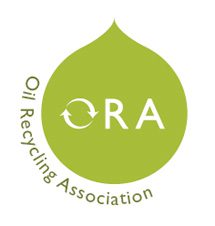News
Waste oil – where are we in 2011
Roger Creswell, director of the Oil Recycling Association (ORA) writes: “Never far from the environmental scene, and despite its wide utility, oil is a word that seems to catch the attention of governments, regulators and commentators, especially when it’s lost or spilt. That seems fair and just; so it means we all have to be focused, particularly so when it comes to managing waste oil”
Obligations for producers
In 2010 the UK introduced the revised EU Waste Framework Directive (rWFD) into national legislation and this placed a number of obligations on waste producers. While all oil streams will at sometime incur a waste, in general, our reference to waste oil is essentially that of used lubricating oils, for example engine oils, and those more common fuels.
If something is discarded (and this has many legal meanings) it is a waste, even if that something is unused. Once a waste, it is to be managed under waste legislation. While offering a high degree of environmental protection, it can create barriers to subsequent reuse or recycling objectives. Waste oil has been one of those difficult areas for regulators. Having the obvious potential for use as a fuel, and recouping its energy content through combustion, then the Waste Incineration Directive (WID) would probably apply, though very few applications can conform to the rigorous emissions standards that are imposed.
In the last few years, a tremendous effort has been channelled by authorities, and the oil recovery industry, into establishing waste policies that have been translated into guidance. These have then been turned into standards, in order to achieve a position that allows for an End of Waste status to occur. All devolved regions of the UK have adopted such a standard that defines the conditions for End of Waste for used oils, in what is generally referred to as the Quality Protocol For Processed Fuel Oil.
Quality protocol
This quality protocol is usually abbreviated to the term ‘QP for PFO’. Essentially its core is a technical standard that seeks to emulate certain classes of industrial fuels, described in BS 2869. This together with certain restrictive additional parameters is designed to ensure that on combustion the fuel will be no more harmful to man or the environment than a comparative virgin fuel. It achieves this through the setting of detailed sampling and test limits/methods, and notably the use of accreditation to demonstrate compliance. There are further restrictions as to what may be incorporated into its feedstock, and on those permitted to produce a PFO, but additionally on users of the fuel.
Higher oil prices in 2010 and 2011 have formed attractive outlets for PFO. The result has been that supplies of waste oil inputs are readily sought out on a commercial basis and a potential polluting stream is economically and efficiently removed from the environment. UK markets for the historic waste oil status, Recovered Fuel Oil (RFO), are now very limited, with the consequent need to export some volumes to continental based lime kilns that are WID compliant and where duty differentials make it an attractive fuel.
Twists and turns?
The rWFD transposed legislation referred to earlier, has required waste producers to declare that they have considered the hierarchal requirements that place an option of material recycling higher than that for energy recovery. What this means, is that for used lubricating oils, can the inherent basic lubrication oil fraction it contains be recovered for reuse? – a process known as re-refining. This also says that where combustion is the selected option, it needs to be justified through Life Cycle Thinking, and that is recovery usage and not recycling, a fine point in law. The Department for Environment, Food and Rural Affairs’ Hazardous Waste Guidance was published recently. www.defra.gov.uk/environment/
waste/business/hazardous-waste
Finally, in 2011 government’s National Policy Statement on Hazardous Waste and Planning for Infrastructure, puts forward a specific policy to encourage investment in a modern high technology lubricants re-refinery. This reflects waste hierarchy policy, but substantial monies will be required from the private sector.
www.oilrecyclingassociation.co.uk
